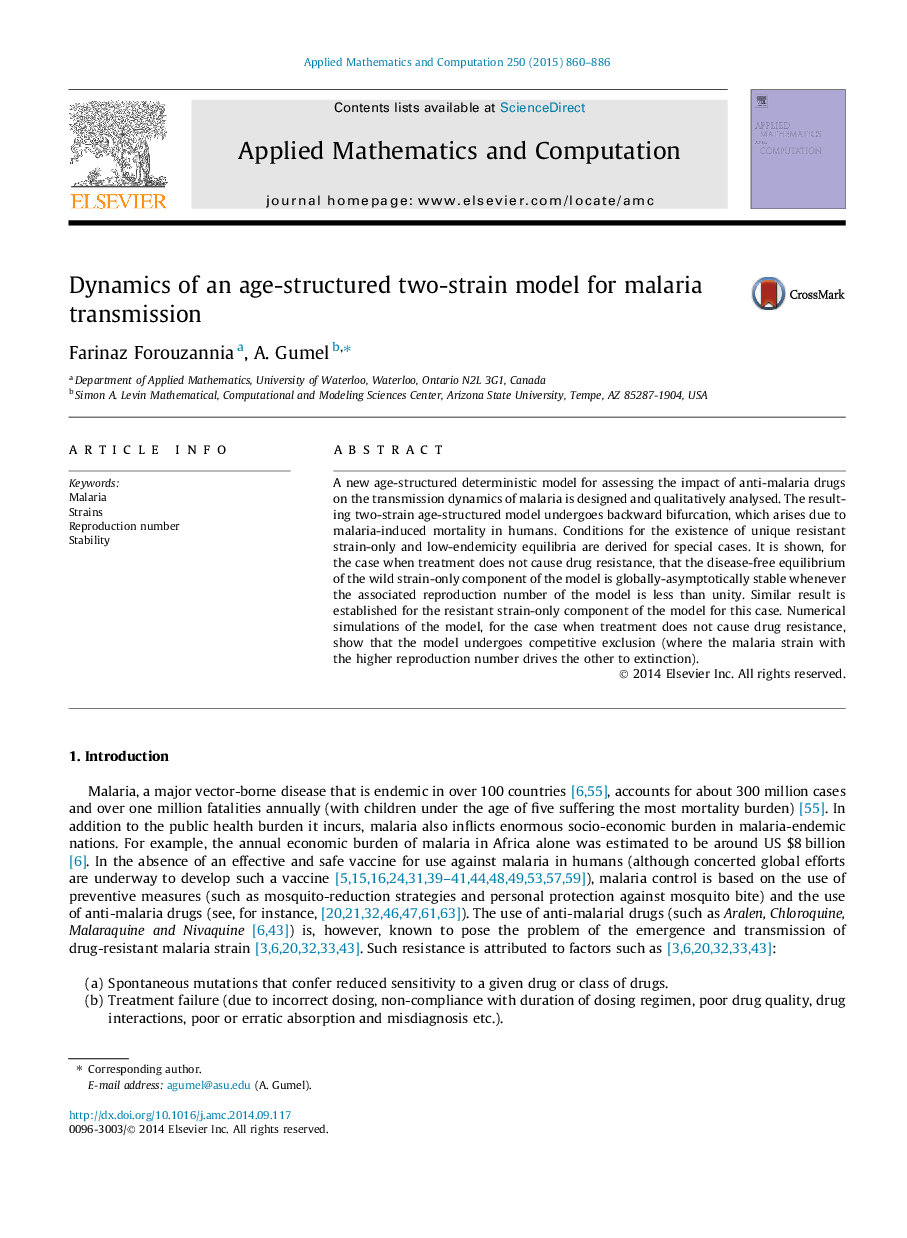| Article ID | Journal | Published Year | Pages | File Type |
|---|---|---|---|---|
| 4627244 | Applied Mathematics and Computation | 2015 | 27 Pages |
A new age-structured deterministic model for assessing the impact of anti-malaria drugs on the transmission dynamics of malaria is designed and qualitatively analysed. The resulting two-strain age-structured model undergoes backward bifurcation, which arises due to malaria-induced mortality in humans. Conditions for the existence of unique resistant strain-only and low-endemicity equilibria are derived for special cases. It is shown, for the case when treatment does not cause drug resistance, that the disease-free equilibrium of the wild strain-only component of the model is globally-asymptotically stable whenever the associated reproduction number of the model is less than unity. Similar result is established for the resistant strain-only component of the model for this case. Numerical simulations of the model, for the case when treatment does not cause drug resistance, show that the model undergoes competitive exclusion (where the malaria strain with the higher reproduction number drives the other to extinction).
